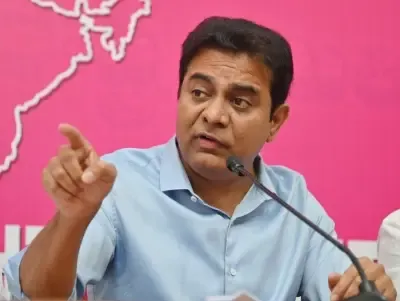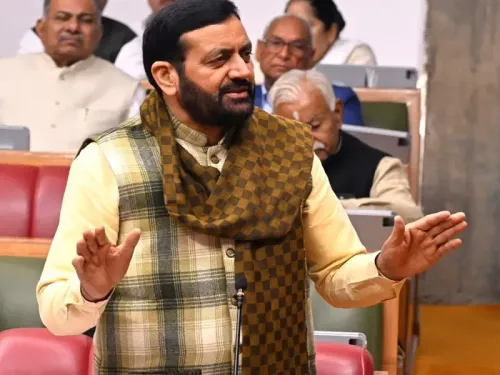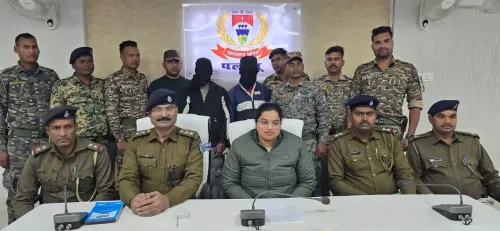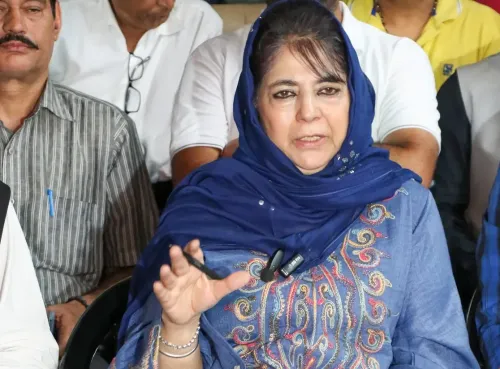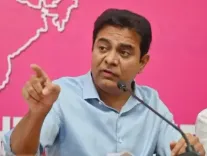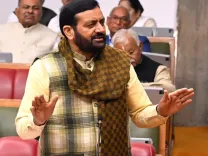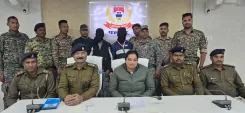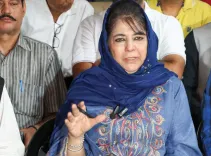Did Abu Azmi Criticize the Maharashtra Public Security Bill?
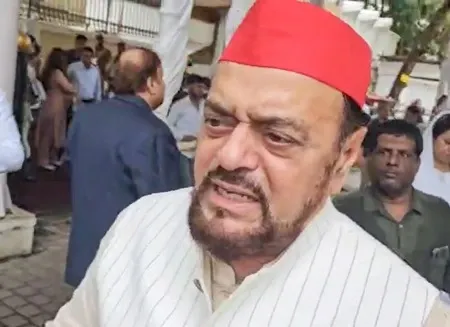
Synopsis
Key Takeaways
- Potential for Misuse: The Bill could lead to the unjust targeting of marginalized communities.
- Excessive Police Powers: The law grants significant authority to law enforcement, risking abuse.
- Impact on Democracy: Critics argue it threatens civil liberties and democratic rights.
- Historical Context: Similar laws have been misused in the past.
- Need for Vigilance: Continuous monitoring is essential to prevent misuse of such legislation.
Mumbai, July 11 (NationPress) Following the passage of the Maharashtra Public Security Bill, 2024 by the Maharashtra Assembly, which is aimed at tackling illegal activities from Left Wing Extremist (LWE) groups and similar factions, Abu Asim Azmi, the Maharashtra President of the Samajwadi Party, vehemently criticized the government, cautioning that this law could be severely misused to stifle dissent and target marginalized communities.
In an interview with IANS, Azmi expressed that while the objective of combating extremism may be commendable, the extensive powers conferred by such laws present a significant threat to democracy and civil liberties.
“This Bill, under the pretext of combating Maoism, grants the police excessive authority, which has historically been abused. We have witnessed the consequences of TADA, where numerous innocent individuals, including myself, were wrongfully implicated,” Azmi remarked, alluding to the now-repealed Terrorist and Disruptive Activities (Prevention) Act.
He emphasized, “Our opposition to this Bill is not due to support for extremism, but rather a fear of its misuse. When significant protests occur against the government, and when Dalits or other marginalized groups assemble, false narratives will emerge. Accusations will be made that a Maoist was present at such events, even if the organizers are unaware of anyone fitting that description. Innocent individuals could face arrest, and proving their innocence may take years.”
Azmi also challenged Maharashtra Chief Minister Devendra Fadnavis’s claims that the Bill would not be misused.
“How long will Fadnavis hold his position? Authority is transient. He can say what he wishes now, but reality can differ. Just look at the Enforcement Directorate (ED). Numerous individuals have been arrested and detained for years without any conviction. These laws serve as political tools,” he cautioned.
Azmi criticized the potential for such laws to become instruments of oppression against the Opposition.
“Any ruling party can exploit these laws. It's a perilous precedent. Protest, dissent, and public mobilization are increasingly being criminalized in the name of national security,” he warned.
Azmi reiterated that the Maharashtra Public Security Bill seeks to silence opposition to the ruling party.
“Wherever there is resistance—against injustice, corruption, or discrimination—this law may be employed to suppress dissent. Dalits, Adivasis, Muslims, students, activists, anyone can be labeled as a Maoist. It’s a perilous instrument in the hands of the state,” he cautioned.
He further responded to the Maharashtra government's proposed anti-conversion law and the inquiry into unauthorized churches, labeling it discriminatory and based on a skewed narrative. Azmi contended that forced conversions are not as widespread as suggested, and the reality is much more complex.
“Individuals typically choose to change their faith voluntarily. During my youth in Azamgarh, sanitation workers, who faced complete ostracism, were treated with dignity by Christian missionaries. They were welcomed into homes, given healthcare and education, and restored dignity,” he reminisced.
Azmi stated that such initiatives often encourage voluntary religious conversion.
“Yes, if conversion is coerced, the government must intervene. However, I can confidently assert that no organization in India is actively forcing conversions or receiving foreign funds for that purpose. What exists is a voluntary acceptance, often inspired by the service and love shown by religious workers in rural areas.”
He also cautioned against the manipulation of the current narrative to intimidate minorities.
“When someone converts, especially from Hinduism, these so-called nationalists threaten them. They compel individuals to claim they were coerced. This is harassment. The Constitution guarantees the freedom to spread one’s religion. What is happening now is unjust and unconstitutional,” he argued.
Reacting to BJP leader Nitesh Rane’s controversial remark that the Islamic call to prayer (Azan) should be delivered in Marathi, Azmi dismissed the proposal as ignorant and incendiary.
“Urdu is an Indian language. It originated here. Historical documents, including the FIR from Mahatma Gandhi’s assassination, were written in Urdu. Urdu once served as the administrative language,” he asserted.
“Nitesh Rane has no authority to dictate how we should pray or in which language we should recite our scriptures. Should we now demand that Hindus cease reciting in Sanskrit? This is blatant interference in religion and is entirely unacceptable.”
Azmi further stated that such remarks are part of a broader strategy to marginalize religious minorities and escalate communal tensions.
“Why entangle religion with language politics? Individuals should be able to pray in their own language. That is guaranteed by the Constitution. Cease attempting to dictate how people practice their faith,” he concluded.


